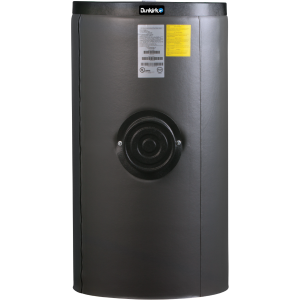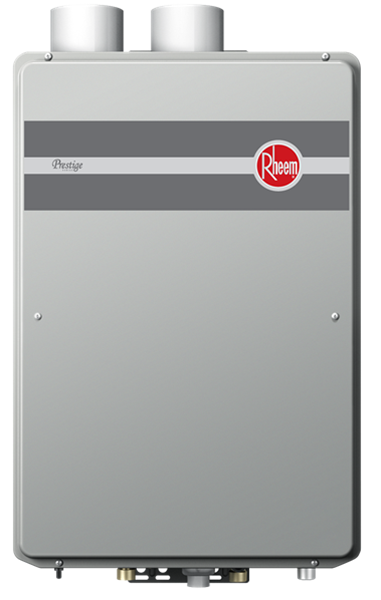Water Heaters
When selecting a new water heater for your home, choose a water heating system that provides enough hot water for your family and is also energy efficient to save you money. Consider the different types of water heaters available and determining the right size and fuel source for your home.
TYPES OF WATER HEATERS
- Types of Water HeatersIt's a good idea to know the different types of water heaters available before you purchase one:
- Conventional storage water heaters offer a ready reservoir (storage tank) of hot water which is adequate for everyday use. However, there are some instances, such as when more than one use for hot water is occurring or when there are guests in the home, increasing the requirements for hot water.
- Tankless or demand-type water heaters heat water directly without the use of a storage tank. This type of water heater is designed to provide an adequate supply of hot water without running out when adequately sized.
- Heat pump water heaters move heat from one place to another instead of generating heat directly for providing hot water, resulting in high efficiencies and significant cost savings.
- Solar water heaters use the sun's heat to provide hot water and also save money on energy bills.
- Selection CriteriaWhen selecting the best type and model of water heater for your home, consider the following:
- Fuel type, availability and cost. The fuel type or energy source you use for water heating will not only affect the water heater's annual operation costs but also its size and energy efficiency. See below for more on selecting fuel types.
- Size. To provide your household with adequate hot water and maximize efficiency, you need a properly sized water heater. Visit the pages on different types of water heaters (linked above) for more on sizing.
- Energy efficiency. To maximize energy and cost savings, check the energy efficiency of a water heater before you purchase it. Visit the pages on different types of water heaters (linked above) for more on estimating energy efficiency.
- Costs. Before you purchase a water heater, it's also a good idea to estimate the annual operating costs and compare those costs with other less or more energy-efficient models. Visit the pages on different types of water heaters (linked above) for more on estimating costs.
- Fuel Types, Availability and Costs for Water HeatingWhen selecting a new water heater, it's important to consider what fuel type or energy source you will use, including its availability and cost. The fuel used by a water heating system will not only affect annual operation costs but also the water heater's size and energy efficiency.
Exploring Water Heater Options by Fuel Type
Fuel type and its availability in your area may narrow your water heater choices. The following is a list of water heater options by fuel or energy source:- Electricity Widely available in the United States for conventional storage, tankless or demand-type, and heat pump water heaters. It also can be used with combination water and space heating systems, which include tankless coil and indirect water heaters.
- Fuel oil Available in some areas of the United States to fuel conventional storage water heaters, and indirect combination water and space heating systems.
- Geothermal energy Available throughout the United States to those who will have or already have a geothermal heat pump system installed in their homes for space heating and cooling. See Heat Pump Water Heaters for more information.
- Natural gas Available in many areas of the United States to fuel conventional storage and demand (tankless or instantaneous) water heaters, as well as combination water and space heating systems, which include tankless coil and indirect water heaters.
- Propane Available in many areas of the United States to fuel conventional storage and demand (tankless or instantaneous) water heaters, as well as indirect combination water and space heating systems.
- Solar energy Available throughout the United States -- most abundantly in the Southwest -- for solar water heaters.
- Comparing Fuel Costs and Water Heater TypesIf you have more than one fuel type available in your area, it's a good idea to compare fuel costs, especially if you're building a new home. Even if you're replacing a water heater, you may find that you'll save more money in the long run if you use a different fuel or energy source. However, if you are converting from one fuel type to another, there are other cost considerations, such as adding a breaker or running a gas line to the water heater and venting it outside. Contact your utility for current fuel costs or rates. The type of water heater you choose will also affect your water heating costs. One type of water heater may use a fuel type more efficiently than another type of water heater. For example, an electric heat pump water heater typically is more energy efficient than an electric conventional storage water heater. Also, an electric heat pump water heater might have lower energy costs than a gas-fired conventional storage water heater, even though local natural gas costs might be lower than the electricity rates.


